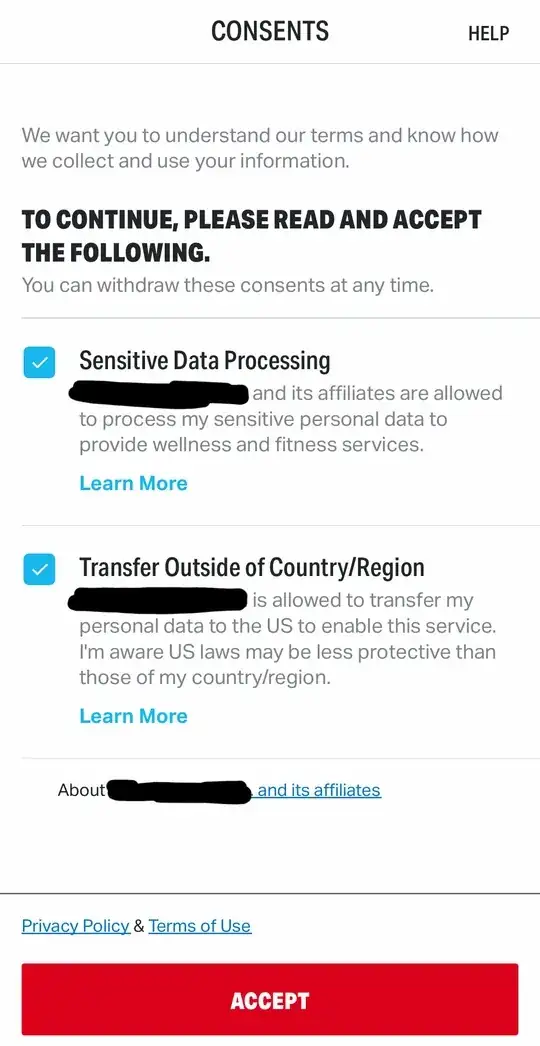I have recently come across this part of an app from a well-known US company:
Is this a legal way of handling some of the technical obstacles GDPR introduced? Is this a "flexible" interpretation of the law or is it straight up illegal?
To give the whole picture - I was asked where I live and based on that I was presented with this consent sheet. If I don't check the box, I cannot move any further - I have to give consent if I want to use the app.
I was OK with giving that consent, but does that mean I also lose my rights that come with GDPR? The right to download my data, the right to be forgotten etc?
I'm not interested in shaming the company, but I am interested in knowing if the approach - "I'll ask if they are OK with losing those rights so that I can do whatever I want" - is a correct way of handling the law. I didn't assume GDPR is "optional". Kind of defeats the purpose of having it if companies can put this in the fine print or worse - disallow anybody to use their software unless they give their private data to them with no strings attached.
I saw and read a connected question here, but in my situation, I am actually unable to do anything unless I accept the terms.
